Duxford unveils roadway 'crucial' to World War Two Normandy landings
- Published
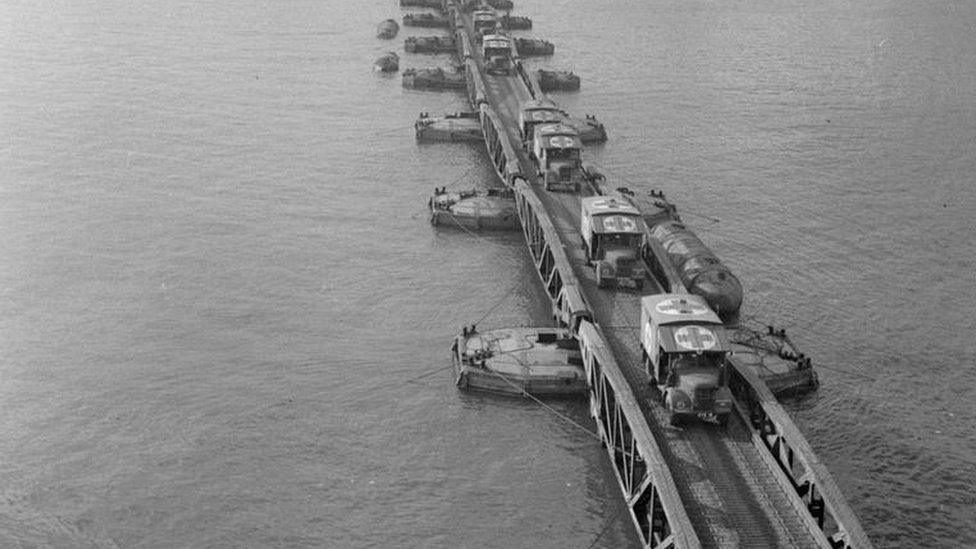
The flexible roadway enabled men and supplies to access Normandy's beaches
A piece of the temporary floating harbour that helped the Allies invade Normandy in 1944 has been restored and put on display.
A section of its roadway has been donated to the Imperial War Museum at Duxford in Cambridgeshire.
Press officer Esther Blaine said the harbour was "crucial to the success of the Allies" and the roadway was "the only one of its type in the UK".
It was used to bring men and supplies from ships to Normandy's beaches.
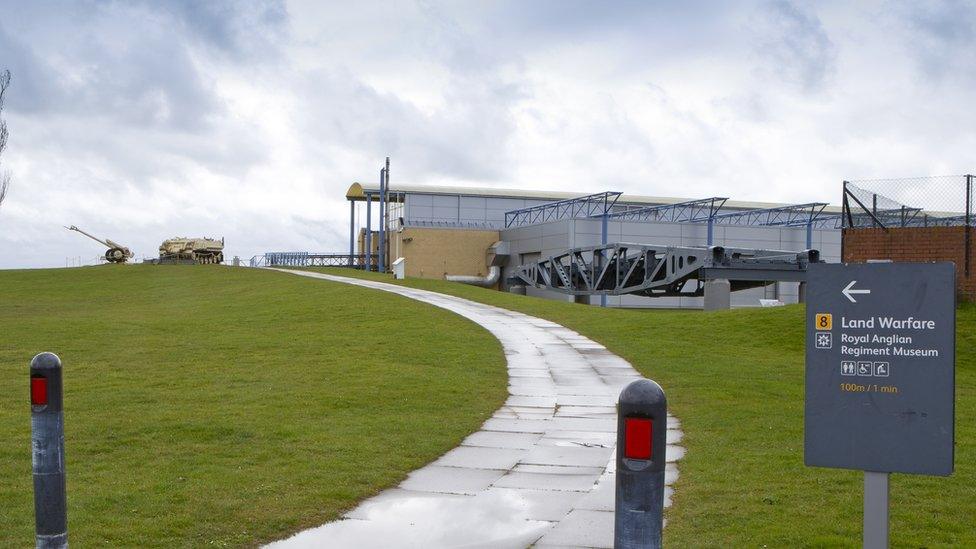
The 24m (80ft) section of roadway was conserved and painted at Marshall Land Systems in Cambridge
The floating ports were called Mulberry harbours, external, while the flexible roadways linking them to the beaches were codenamed Whales.
For five months following D-Day (6 June 1944), they landed two million men, 500,000 vehicles and and four million tonnes of supplies.
After the war, a 24m (80ft) long, 27 tonne Whale section was taken to Pont-Farcy in Normandy where it served as a bridge for many years.
After its concrete supports were damaged in a storm in 1990, it was dismantled and eventually given to a voluntary group called Les Amis du Pont Bailey in 2008.
They dismantled and stored the Whale until they donated it to the Imperial War Museum in 2015.
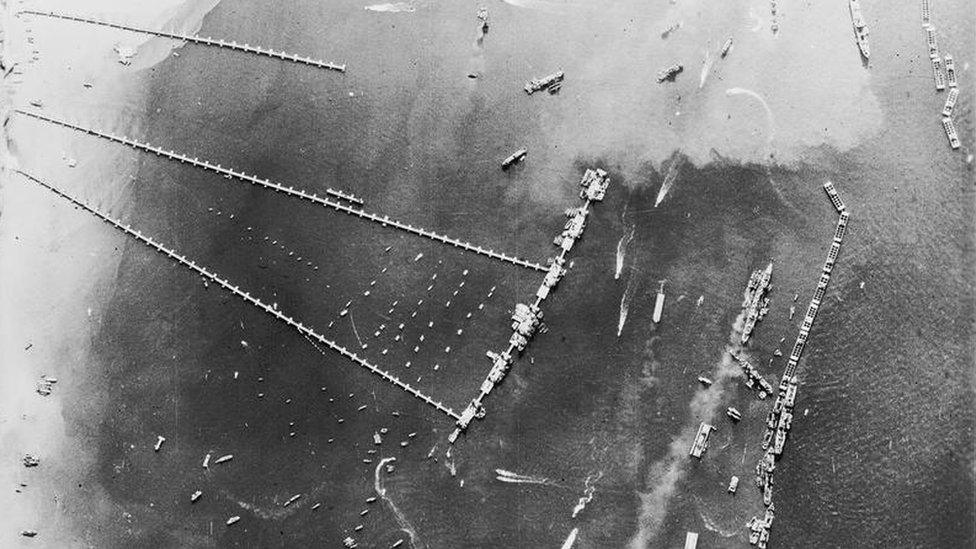
Concrete caissons and floating pier heads were anchored to the seabed while the bridge sections, called Whales, provided the roadways to the beaches
The roadway was designed by Royal Engineer Maj Allan Beckett to flex in all directions to cope with the buffeting of the sea, and his family have helped finance the cost of bringing it to the museum.
When the Allies were planning the invasion, they knew they would need huge harbours for their ships and realised capturing one would be too costly in both men and time.
Instead, two temporary Mulberry harbours were built over six months by about 55,000 workers.
They were then towed across the Channel, external and put together off Omaha Beach and Arromanches.
This Whale was part of Mulberry B at Arromanches, which landed some 7,000 tonnes of supplies a day.
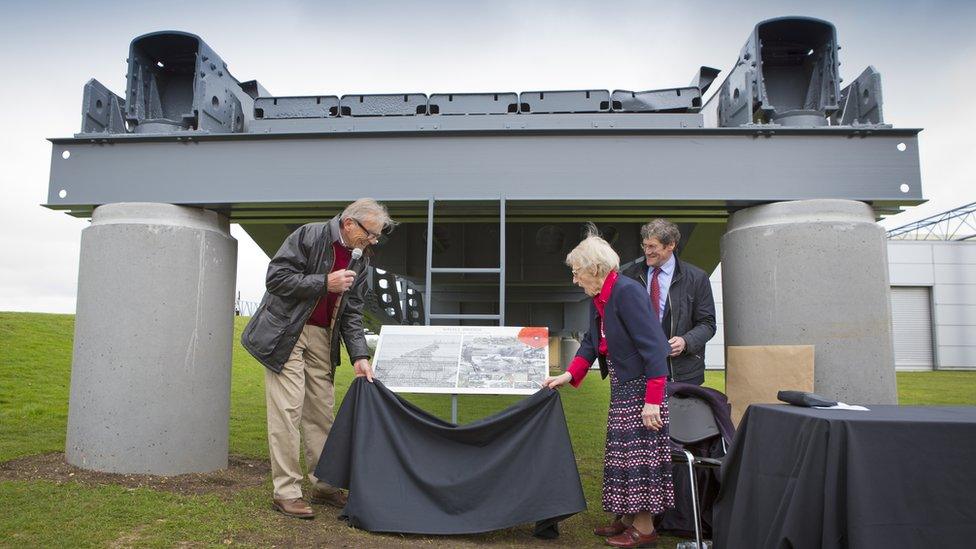
Maj Beckett's widow Ida unveiled the Whale. She said she was proud her "modest" husband had been involved in an "extraordinary engineering feat"
- Published16 March 2016
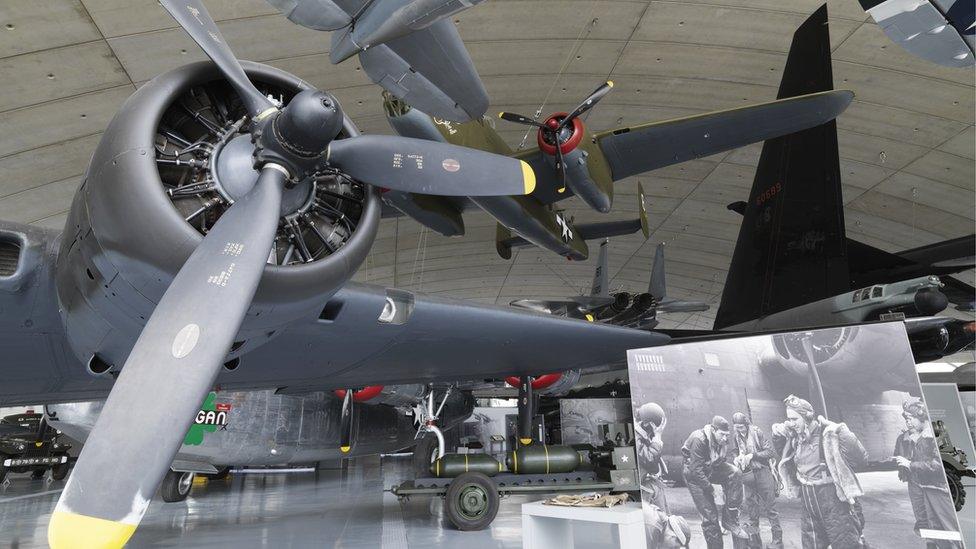
- Published16 January 2016
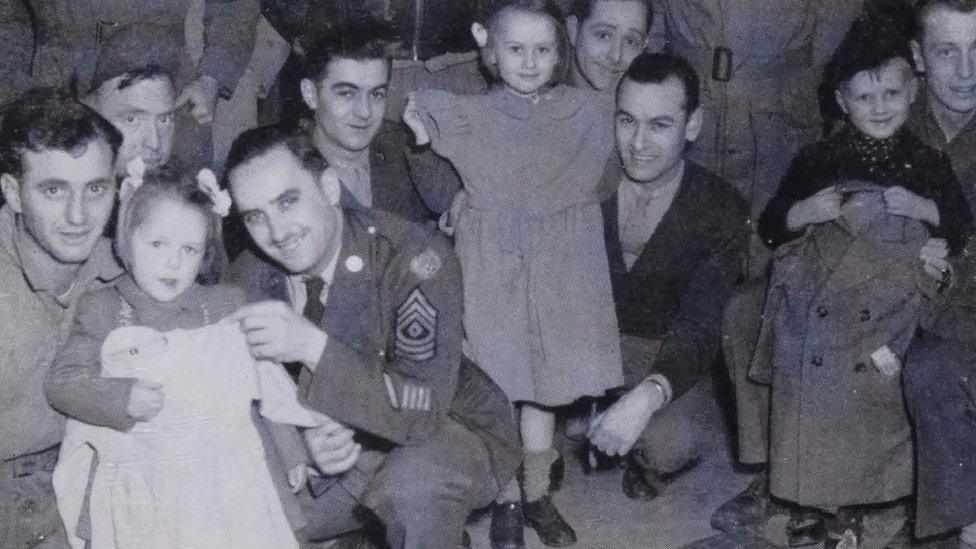
- Published6 June 2014
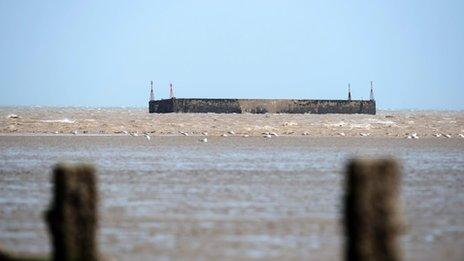
- Published14 March 2013
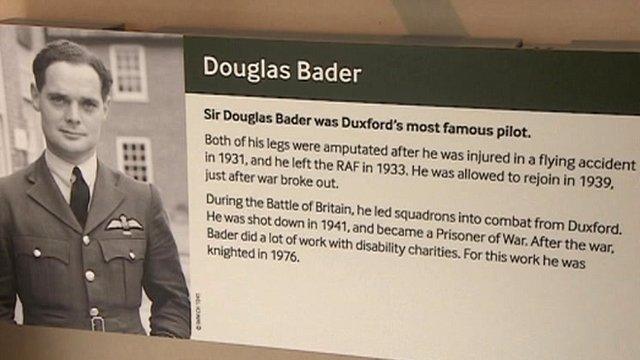
- Published13 April 2013